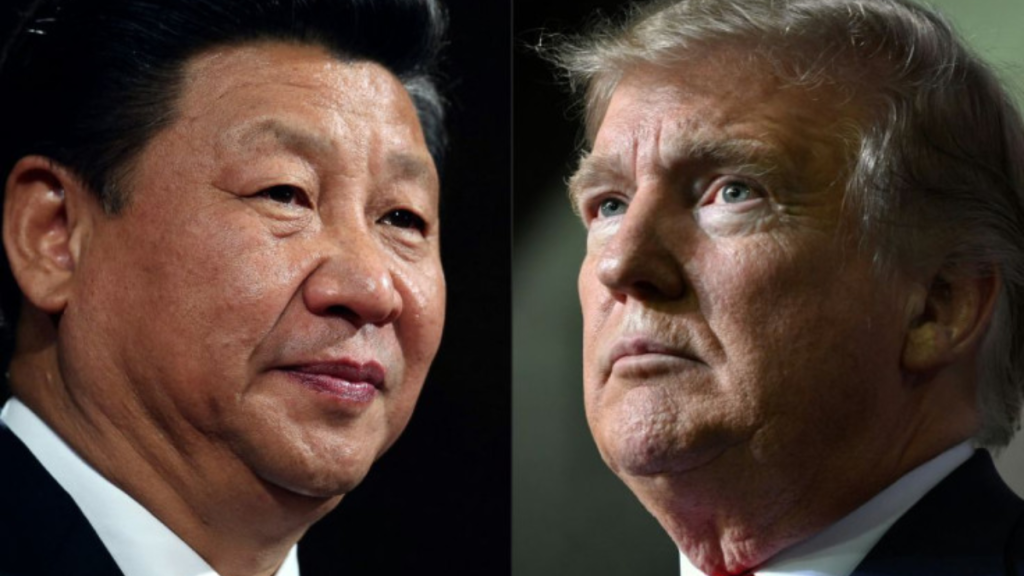In a bold escalation of the ongoing global trade conflict, China has announced it will implement countermeasures against countries that align with the United States in the intensifying trade war.
The Chinese government issued this warning during a press briefing in Beijing on April 21, 2025, making it clear that nations perceived as “appeasing” U.S. protectionist policies could face serious economic consequences.
The warning comes amid mounting tensions between Beijing and Washington, as the Biden administration continues to impose tariffs and restrict trade on key Chinese sectors, including semiconductors, electric vehicles, and telecommunications.
While the United States has encouraged its allies in Europe and Asia to adopt similar trade guardrails, China has made it clear that such support will not go unanswered.
Chinese Officials Accuse U.S. of ‘Economic Containment Strategy’
Chinese Foreign Ministry spokesperson Lin Jian stated on Monday that the United States is waging a campaign of “economic containment,” designed to stifle China’s technological development and global competitiveness. Lin emphasized that countries choosing to side with Washington should be prepared to “bear the consequences.”
“We will not tolerate external forces harming China’s national interests. Any country that follows the U.S. in unjust actions against China will face countermeasures,” Lin said.
Although no specific retaliatory measures were announced, China has a history of imposing import restrictions, conducting inspections, and slowing customs clearances as forms of economic retaliation.
Previous trade disputes have seen China targeting sectors such as agriculture, luxury goods, and energy supplies in countries seen as aligning with U.S. trade policies.
Allies Caught in the Middle: Europe and Asia Navigate Delicate Diplomatic Terrain
The latest warning is particularly concerning for U.S. allies such as the European Union, Japan, and South Korea. These nations are heavily reliant on both Chinese manufacturing and U.S. technological partnerships.
In recent months, several have attempted to strike a delicate balance—imposing limited restrictions on Chinese products while continuing diplomatic engagement with Beijing.
In 2024, the European Commission imposed anti-subsidy investigations on Chinese electric vehicle imports, a move that mirrored actions taken by the U.S. Department of Commerce. Similarly, Japan has tightened restrictions on the export of advanced semiconductor technology, citing national security concerns and technological theft.
Now, with China’s threat looming, many of these nations may find themselves forced to re-evaluate the risks of aligning too closely with Washington on trade.
U.S. Defends Its Position as ‘Fair Trade Enforcement’
In response to China’s remarks, U.S. Trade Representative Katherine Tai defended American trade policy, stating that the current measures are designed to ensure a level playing field, not provoke conflict.
Tai emphasized the importance of protecting American industries from “non-market practices,” referencing widespread allegations of forced technology transfers and state subsidies that disadvantage U.S. businesses.
“The United States is committed to fair and reciprocal trade. Our goal is not to isolate China, but to protect American innovation and economic security,” Tai said in a statement.
She also dismissed the idea that countries joining the U.S. in imposing trade restrictions are acting under pressure, instead claiming they are independently upholding global trade norms.
Markets React to Renewed Trade War Fears
Global financial markets responded cautiously to the heightened rhetoric. The Shanghai Composite Index fell 1.8% on April 22, while the Hang Seng Index dropped 2.1%. European and U.S. stock markets also dipped slightly, reflecting investor concerns about potential retaliatory tariffs and disrupted supply chains.
Multinational corporations with strong ties to China—such as Apple, Volkswagen, and Samsung—are watching the situation closely. Analysts warn that escalating trade retaliation could lead to increased costs, production delays, and long-term shifts in global supply chains.

What Could China’s Retaliation Look Like?
Although Chinese officials have not detailed specific retaliatory actions, previous examples give insight into potential strategies:
- Targeted tariffs on goods from countries seen as aligned with U.S. trade policies
- Increased regulatory scrutiny of foreign businesses operating in China
- Restrictions on key exports, such as rare earth minerals or lithium
- Diplomatic pressure and suspension of bilateral trade agreements
These measures could have significant implications for global businesses, particularly those involved in high-tech manufacturing, automotive production, and cross-border investment.
The Road Ahead: Trade Cooperation or Cold War?
With both the U.S. and China doubling down on economic nationalism and strategic competition, the likelihood of a prolonged trade standoff is increasing. Experts warn that a new form of economic Cold War may be emerging, characterized by competing technological standards, reshored supply chains, and geopolitical polarization.
Countries caught in the middle—especially emerging economies in Southeast Asia and Africa—will face difficult choices about where to align their economic and political interests. As the world’s two largest economies continue to clash, the potential for fragmentation in global trade networks grows.
Diplomatic efforts are underway behind the scenes, with several European and Asian nations reportedly urging both Beijing and Washington to return to the negotiation table. However, with national pride and strategic interests at stake, finding a peaceful resolution may be a difficult task.
Conclusion
China’s latest warning to countries that support U.S. trade policies underscores the increasingly complex and confrontational nature of global commerce.
As Beijing signals its willingness to strike back at perceived economic aggression, governments and corporations around the world must brace for a future shaped by uncertainty, strategic decoupling, and heightened trade tension.
Stay informed with updates on the global trade conflict by following trusted news sources and government briefings.
For more in-depth coverage of China’s trade stance, visit Reuters.
Disclaimer – Our team has carefully fact-checked this article to make sure it’s accurate and free from any misinformation. We’re dedicated to keeping our content honest and reliable for our readers.
